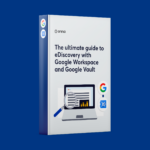
Cornell Law Alum And Novelist Susie Luo On AAPI Representation, Food As Love, And Writing
//
 “For the violence of relationships / Hold your head up, don’t take that sh*t, run away from it / I should’ve ran away myself, the amount of pain I was dealt.” — Nas
“For the violence of relationships / Hold your head up, don’t take that sh*t, run away from it / I should’ve ran away myself, the amount of pain I was dealt.” — Nas
This week, I had the opportunity to interview Susie Luo, author of “Paper Names,” on the podcast “Charge the Wave.” Luo graduated from the University of Pennsylvania and Cornell Law School. She began her career in Biglaw and began writing her novel at night while working as an investment banker at Goldman Sachs.
googletag.cmd.push( function() { // Display ad. googletag.display( "div-id-for-top-300x250" ); });“Paper Names” was published earlier this week and it has already been named a Book of the Month Club Pick for May, and a Best Book of May by “Good Morning America.” It is a Most Anticipated Book by Reader’s Digest and has been hailed as “a well-woven tale about the legacies that are passed down through generations.”
 Sponsored The Ultimate Guide To eDiscovery With Google Workspace And Google Vault An effective team must be well-equipped to handle the unique challenges these tools present. From Onna and Above The Law
Sponsored The Ultimate Guide To eDiscovery With Google Workspace And Google Vault An effective team must be well-equipped to handle the unique challenges these tools present. From Onna and Above The Law It is about an unexpected act of violence that brings together a Chinese American family and a wealthy white lawyer in this propulsive and sweeping story of family, identity, and the American experience.
Set in New York and China over three decades, “Paper Names” explores what it means to be American from three perspectives. There’s Tony, a Chinese-born engineer turned Manhattan doorman, who immigrated to the United States to give his family a better life. His daughter, Tammy, who we meet at age 9 and follow through adulthood, and who grapples with the expectations of a first-generation American and her own personal desires. Finally, there’s Oliver, a handsome white lawyer with a dark family secret, who lives in the building where Tony works. A violent attack causes their lives to intertwine in ways that will change them forever.
googletag.cmd.push( function() { // Display ad. googletag.display( "div-id-for-middle-300x250" ); }); googletag.cmd.push( function() { // Display ad. googletag.display( "div-id-for-storycontent-440x100" ); }); googletag.cmd.push( function() { // Display ad. googletag.display( "div-id-for-in-story-youtube-1x1" ); });Taut, panoramic, and powerful, “Paper Names” is an unforgettable story about the long shadows of our parents, the ripple effect of our decisions, and the ways in which our love transcends differences.
I was especially inspired by the opportunity to interview Luo during AAPI Heritage Month because of the generational perspectives she covers in her writing. For anyone supporting AAPI voices and writers this month, be sure to pick up “Paper Names” today. Without further ado, here is a (lightly edited and condensed) write-up of our conversation:
Sponsored Sponsored Lex Machina Expands The Power Of Legal Analytics To Litigation In State Courts Lex Machina expands its powerful machine learning, trained and reviewed by attorneys, to help legal practitioners make data-driven decisions in state courts as well as… From Ethan Beberness
Sponsored Lex Machina Expands The Power Of Legal Analytics To Litigation In State Courts Lex Machina expands its powerful machine learning, trained and reviewed by attorneys, to help legal practitioners make data-driven decisions in state courts as well as… From Ethan Beberness  Sponsored Why CRM Is An Essential Tech Tool For Law Firms In 2023 CRMs are powerful tools to help law firms grow and scale without needing more staff. Read on for a brief overview of the basic benefits… From Jan Hill - Lawmatics
Sponsored Why CRM Is An Essential Tech Tool For Law Firms In 2023 CRMs are powerful tools to help law firms grow and scale without needing more staff. Read on for a brief overview of the basic benefits… From Jan Hill - Lawmatics  Sponsored The Ultimate Guide To eDiscovery With Google Workspace And Google Vault An effective team must be well-equipped to handle the unique challenges these tools present. From Onna and Above The Law
Sponsored The Ultimate Guide To eDiscovery With Google Workspace And Google Vault An effective team must be well-equipped to handle the unique challenges these tools present. From Onna and Above The Law  Sponsored Exploring ESG through the Lens of Risk Management Join us on May 11th and learn how to frame ESG as risk management and the trends to watch. From Axiom and Above The Law
Sponsored Exploring ESG through the Lens of Risk Management Join us on May 11th and learn how to frame ESG as risk management and the trends to watch. From Axiom and Above The Law Renwei Chung: Can you share with us a bit about your background and career voyage?
Susie Luo: Of course – and thank you for giving me the opportunity to share my journey and my novel on ATL! I was born in China, came over to America when I was 3 years old, spent some time with my family in Flushing, New York, and mostly grew up in New Jersey.
I’m a full-time writer now, but I definitely took the scenic route! After graduating from Penn, I went where every responsible political science major is supposed to go: law school. Then I moved to New York City, where I practiced as a mergers and acquisitions lawyer at Shearman & Sterling for three years before moving on to becoming an investment banker at Goldman Sachs for three years. I wrote my debut novel, “Paper Names,” during my final year at Goldman.
googletag.cmd.push( function() { // Display ad. googletag.display( "div-id-for-bottom-300x250" ); });RC: What prompted you to write a novel?
SL: I started writing “Paper Names” in March 2020. The first month of lockdown. I don’t have to remind everyone what that time felt like. I was so grateful that we could still connect with our family and friends via FaceTime, virtual hangouts, and phone calls.
Sponsored Sponsored ChatGPT Draws State Lawmakers’ Attention To AI ChatGPT and other AI models have drawn a great deal of public attention since being introduced last year—state lawmakers are taking notice too. From Korey Clark, Editor, State Net Capitol Journal™
Sponsored ChatGPT Draws State Lawmakers’ Attention To AI ChatGPT and other AI models have drawn a great deal of public attention since being introduced last year—state lawmakers are taking notice too. From Korey Clark, Editor, State Net Capitol Journal™  Sponsored Exploring ESG through the Lens of Risk Management Join us on May 11th and learn how to frame ESG as risk management and the trends to watch. From Axiom and Above The Law
Sponsored Exploring ESG through the Lens of Risk Management Join us on May 11th and learn how to frame ESG as risk management and the trends to watch. From Axiom and Above The Law But after a few weeks, I realized there were people in my life I wasn’t able to connect with. People like some of my doormen, the security guard outside the office, the barista who knew my coffee order. These were people who I saw more regularly than most of my friends. I missed them. And that got me thinking about what their lives looked like behind the sunny “hellos” and “good mornings.” And what a deeper friendship between someone like a doorman and a resident of a building would look like.
RC: “Paper Names” is set in New York and China, covering three decades – and tells an unforgettable story about the long shadows of our parents, the ripple effect of our decisions, and the ways in which our love transcends difference. What inspired you to tell the story from three different generational perspectives?
SL: Because sticking to one perspective would’ve been too boring for me to write! In life, people can witness the exact same situation and walk away thinking different things happened. It’s what makes humans so fascinating and so frustrating.
I wanted to show different perspectives (our distinguished trio here is Tony, Tammy, and Oliver) to reinforce the idea that we all move through the world in a way that makes sense to us, but not others. And so maybe we can give people who act or think differently from us a little grace.
In “Paper Names,” we see that Tony fiercely loves his daughter Tammy, not always in the way she wants or needs, but in the best way he knows how. And if she could take a step back and slip into his shoes, she can recognize how deep that love is.
RC: It is still so rare to see an AAPI woman protagonist featured in literary works or represented on television and the big screen. How can we ensure more of these stories are told in Hollywood and the media in general?
SL: I wish I had the solution. I think maybe one step we can take is doing away with the assumption that the audience or the acting talent for these stories aren’t there.
The AAPI community wants to watch these stories! And we will show up! Just like we did for “Shang-Chi” — which was a massive box office success and proved that even the Marvel franchise could evolve and cast diverse talent — and for “Everything Everywhere All At Once” — which started out as a smaller movie and exploded. (Fun fact: I would love Ke Huy Quan to play Tony!)
RC: The expression “Did you lose face?” and the following excerpt will be all too familiar to many of your readers. What do you hope folks who aren’t as painfully familiar with this concept takeaway from this piece of the novel?
Did you lose face? A phrase that he’d grown up with. Defended against. His father used to spit it at him at every opportunity. That one time he missed top honors in the third grade. Or when, from the stern of a small fishing boat, he struggled to drag up the net, a three-meter-long cylindrical mesh contraption that was too unwieldy for a twelve-year-old boy. Or on his sixteenth birthday, when his father read out loud a newspaper’s rejection letter of his short story. Afterward, he tore up the paper. “You wrote about a talking calculator? You just made me lose my face.”
Tony hadn’t heard that phrase since he’d left the village for college. By then, he had made himself unobjectionable. Not only was Tony brilliant — the top engineering student at the Dalian University of Technology — but he also played basketball. A rare meld of brawn and brains in China. Girls hung around the court after his games, hoping for some attention. They all knew he was going places. Everyone — from his professors to his roommates — knew he was special.
SL: Shame is a universal experience. We’re all at the mercy of it. And I wanted to show readers that even someone who looks wildly accomplished on the outside — whether that be Tammy, a brilliant young lawyer; or Oliver, a handsome scion; or Tony, who buys his dream house — can feel that acute ache. They can all fear judgment — or the nagging thought that they’re not good enough.
I hope that the next time readers feel that sinking feeling of shame, they find compassion for themselves, and realize that at that precise moment, many people are feeling the same way. We can let shame isolate us or we can let the shared experience connect us.
RC: I noted numerous references to food as a language of love throughout the book? Can you share more about this theme?
SL: Dumplings! Sesame balls. Biang Biang noodles. Did I just make you hungry?
Making food for someone is such a caring act, and especially for low-income families, it’s an important way to show love. Parents can’t always afford to buy their children the coolest toy on the market (which was, of course, Barbie’s driveable Jeep), but they can put time and effort into making them their favorite meal.
This theme of making food to express love was just another way to show that it’s these caring acts that mean far more than money ever will. Money isn’t everything — and when it comes to love, it could actually mean nothing.
RC: Can you share some of the other underlying narratives interwoven throughout?
SL: One underlying narrative is about the little things we experience that inspire us to do the big things. When Tammy has that small interaction with the lady at the nail salon, it kicked off her desire to become a lawyer. Or when Tammy offhandedly says that something is “cool,” it propels Tony to go outside of his comfort zone and pose alongside a movie star for a magazine cover. We often think it’s the big moments that make us change our lives, but I wanted to show that more often, it’s the small moments that change our heart.
Another narrative that I explore in “Paper Names” is what I call “performative goodness.” Oliver does “good” things — he talks to his doormen about their families, he’s extra nice to the waitress, and he runs marathons for charity. But when Oliver does these things, he’s doing mental math. He’s calculating the cost of doing that thing versus how much benefit he’ll receive.
On the other hand, there are times when the best of humanity surges up in an instant. When Tony sees someone who needs help, he immediately sprints to her aid, even though it puts him in harm’s way. This begs the questions: how much of our goodness is strategic and selfish, how much is instinctual, and what’s in between?
RC: Any advice for someone wanting to balance a legal career with a creative side hustle?
SL: Just give it a try! It’s easy to think of a project as having to climb an entire mountain, when it’s really about putting one foot in front of the other. If I thought of writing as publishing a perfectly polished book, I might never have started. But I thought of it as writing 250 words a day, and then 1,000 words a week, and then a chapter a week.
It’s much easier to balance a creative endeavor with a legal career by taking those small steps, and one day, you might find it blooming into something much larger.
RC: What do you think will surprise readers about “Paper Names”?
SL: “Paper Names” is an AAPI book, but it’s not *just* an AAPI book. It’s a book for everyone. It’s full of sweet surprises and twists, and I guarantee you won’t see the ending coming!
RC: Anything else you’d like to share with the Above the Law audience?
SL: When I was a lawyer, I’d always go on ATL to read the juicy gossip and see what former lawyers were up to, so it’s such a full circle moment to get featured here!
On behalf of everyone here at Above the Law, I would like to thank Susie Luo for sharing her story with our audience. We wish her continued success in her career.
Renwei Chung is the DEI Columnist at Above the Law. He currently serves as a Board Advisor for The Diversity Movement (TDM), whose integrated approach enables law firms to build and strengthen culture by tying real-world business outcomes to DEI initiatives via a scalable subscription-based employee experience platform. And he is excited to host TDM’s and Footnote 4’s new podcast Charge the Wave — focused on entrepreneurs, executives, and icons who are assiduously building companies, cultures, and communities.
TopicsAAPI, Biglaw, Books, Renwei Chung, Susie Luo
Introducing Jobbguru: Your Gateway to Career Success
The ultimate job platform is designed to connect job seekers with their dream career opportunities. Whether you're a recent graduate, a seasoned professional, or someone seeking a career change, Jobbguru provides you with the tools and resources to navigate the job market with ease.
Take the next step in your career with Jobbguru:
Don't let the perfect job opportunity pass you by. Join Jobbguru today and unlock a world of career possibilities. Start your journey towards professional success and discover your dream job with Jobbguru.
Originally posted on: https://abovethelaw.com/2023/05/cornell-law-alum-and-novelist-susie-luo-on-aapi-representation-food-as-love-and-writing/